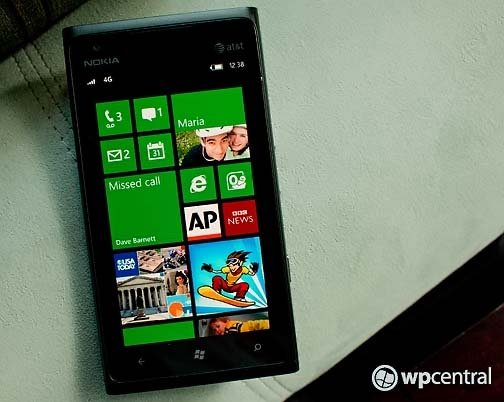Why Windows Phone 8 is not a phone version of Windows 8 (RT)

All the latest news, reviews, and guides for Windows and Xbox diehards.
You are now subscribed
Your newsletter sign-up was successful
Over at Pocket Lint there is an interesting interview with Greg Sullivan, the Senior Product manager for Windows Phone detailing why Microsoft has decided to continue down the route of an entirely separate operating system for phones rather than using Windows RT.
Sullivan states that he believes that the phone is "unique enough to devote a specific effort... and differentiating that", going on to make comparisons to the most successful tablet on the market at this time:
"When I use an iPad I think it’s a really pleasurable experience, it’s a great consumption device, but I constantly run into guardrails. I want to connect a USB mass storage, oh I can't. I want to print to a printer other than the one Lexmark or whatever, I can't. I keep wanting to do things I can't do. I think it's primarily because of the fundamental strategy where they [Apple] took a phone OS and stretched it up to a tablet.""We are taking a PC OS and shrinking it down. We could have done the same thing, but it doesn't make sense. When we deliver Surface or any Windows 8 device, the Pro model will run every Windows app ever written. That think will run Visicalc 1.0 from 1981. I saw a demo. It's amazing. It's part of the promise.""They draw the line between the phone/tablet and the PC, and we are drawing the line between the PC/tablet and the phone."
Let's back up a little bit, and remember the differences between Windows 8 and Windows RT. Windows 8 is your full-fat, all inclusive, no compromise operating system which runs on the traditional x86 infrastructure. This means it can be installed on your existing or new systems built on an Intel or AMD processor (or something more exotic using the same instruction set)...
On the other hand Windows RT is designed to run on ARM devices like the Snapdragon in your current Windows Phone.
Consumers; thanks to Windows 8 using the existing architecture and supporting Win32 APIs it can run any application that currently works on existing Windows versions. Whereas Windows RT uses the new WinRT (Windows Runtime) programming model only, so Metro style apps will work, and that's all. Actually one minor exception there, the bundled Microsoft Office on Windows RT will run in a desktop environment.
For those of you tracking the Surface as your next tablet, Windows 8 is the version coming in the larger "pro" version which will be released 3 months after the first "RT" version which, you guessed it, will run Windows RT.
So, if it runs on ARM devices, Windows RT could theoretically be installed on a phone device.
All the latest news, reviews, and guides for Windows and Xbox diehards.
Windows RT though is something of an unknown beast right now. No one outside of Microsoft has had a lot of time utilizing it (unlike the extensively distributed preview versions), and we really don't know how stable and usable it will be, and I for one, am glad to see it won't be fueling the Windows Phones of tomorrow.
Don't misunderstand me here, Windows 8 is a very exciting operating system, in fact this article is being composed on the release preview. The new metro interface is the same breath of fresh air many experience the first time the use Windows Phone 7, just a tad more familiar this many years later. However we don't know if Microsoft has got Windows RT right yet, we don't know if it will be a perfect tablet experience that is perfectly smooth, reliable, and able to compete on the incredibly fierce tablet market. Right now, Windows 8 has still got a few bugs to be ironed out as those trying the previews will have experienced, apps crash, the system can occasionally freeze up, and I have actually had a critical failure which forced me to re-install from scratch.
To my mind this kind of behaviour simply cannot occur on a phone. A phone absolutely must be reliable, I should never worry myself over what I'll find when I press the power button. Nor should I find myself performing a soft reset or pulling the battery on a regular basis. A phone should also be smooth, fast and not bogged-down with time and continued use. As it stands Windows Phone embodies stability compared to some of the other offerings right now, and Microsoft seem to understand that.
Of course, some degree of convergence between the two operating systems is a very good thing, particularly for both developers and end users when it comes to applications. We have mentioned in previous articles that Windows Phone 8 will use the WinPRT (windows phone runtime) programming model which is a subset of WinRT with a few Win32 and COM APIs available. This allows a lot of code to be shared between the platforms, providing developers with the tools to bring similar, but refined, experiences to both tablets and phones.
We'll leave you with one final quote from Greg Sullivan on the matter of convergence which re-iterates Microsoft's approach to their mobile platforms:
"Over time we will already, in Windows Phone 8, share more things like the architecture, and user experience level, and as I hinted that kind of convergence will mean it will make more sense to invest in our platform in the future."
Source: Pocket Lint

Jay is a Former Contributor for Windows Central.
